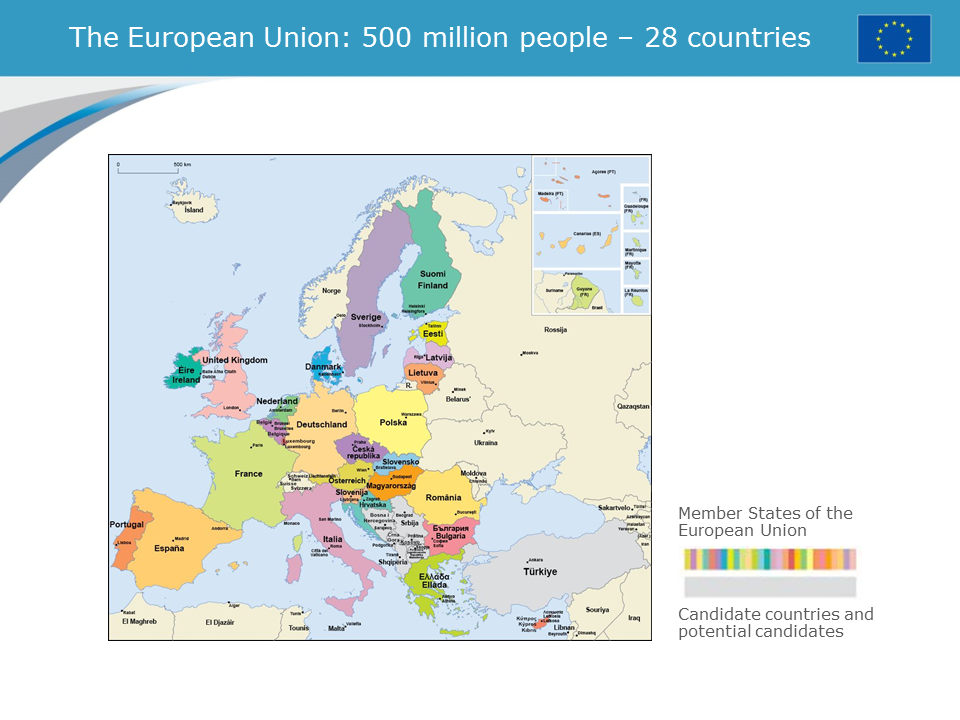The European Union
Topic outline
-

Englisch
The European Union
11.-13. Schulstufe

https://europa.eu/european-union/sites/europaeu/files/european_union_en
-
Task 1
Answer questions about the European Union.
Study the attached slides and write the answers to the questions in the attached word document. -
Task 2
Memorize the member states of the European Union.
Open the attached quiz and put the names of the European member states in alphabetical order. -
Task 3
Discover the European Union in more detail.
Explain the following EU terms in a few sentences each:
- European values
- EU flag
- European Anthem
- euro
- European Commission
- European Parliament
- Council of the EU
- Treaty of Rome
- Treaty of Lisbon
- Schengen area
- Erasmus+
The slides in Task 1 and the following website will help you to explain the words. -
Task 4
Write a blog comment.
Do you feel you belong to Europe and in what ways?
You have come across the EU website New Narrative for Europe, where young people post their opinions of the European Union. Choose one of the blogs and comment on it.
In your blog comment you should
- refer to the blog you are commenting on
- state whether you feel you belong to Europe
- describe your personal experience with other European cultures and/or languages
- discuss advantages and/or drawbacks of the EU, especially for young people
Write around 250 words. -
Supplement
The average European
Guess whether the following statements are true or false:
- European women usually live longer than men.
- The average European knows one foreign language.
- European women tend to work part-time.
- In her lifetime, the average European woman is more years in employment than a man.
- Men tend to be better paid than women.
- Europeans mostly live in apartments.
- An average European produces almost 500 kilograms of waste per year.
- Europeans go on a journey at least twice a year.
Check your guesses by watching this video:
You can also check the answers
-
-
Informationen für Lehrkräfte
Fachbezug Englisch Bezug zum
FachlehrplanInformationen über die Europäische Union erarbeiten.
Fragen beantworten. Fachbegriffe der EU erklären.
Leseverstehen und Schreiben trainieren.
Einen blog comment verfassen.Schulstufe 11.-13. Schulstufe Zeitaufwand 1-2 Unterrichtseinheiten Handlungsdimension - Wissen und Verstehen
- Anwenden und Gestalten
- Reflektieren und Bewerten
Digitale Kompetenzen 3. Betriebssysteme und Standard-Andwendungen 3.2 Textverarbeitung3.2.1 Schülerinnen und Schüler geben Texte zügig ein.
5. Digitale Kommunikation und Social Media5.1 Interagieren und kommunizieren5.1.1 Schülerinnen und Schüler kennen verschiedene digitale Kommunikationswerkzeuge.Anmerkung Material- und Medienbedarf
-
Diese(s) Werk von MARIA KASTL für www.digikomp.at steht unter einer Creative Commons Namensnennung 3.0 Unported Lizenz.
